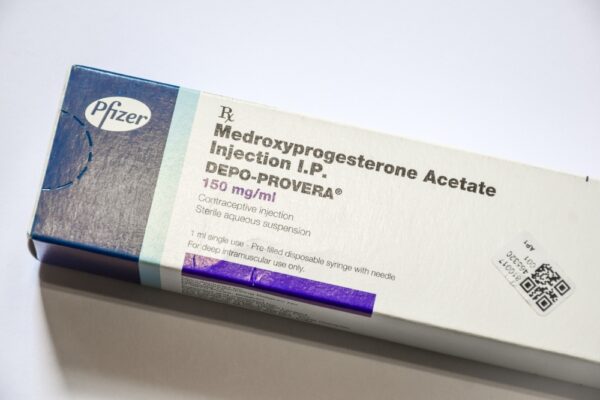Beset with a molehill of sales and a mountain of regulation, DePuy Orthopaedics Inc. announced that it would stop selling the metal-on-metal Ultamet and the ceramic-on-metal Complete hip replacement systems effective Aug. 31.
“The decision to discontinue these products is not related to safety or efficacy, and is not a recall,” wrote DePuy, although, stimulated by alarming device-failure rates, metal-on-metal hip implant lawsuits have been filed across the country.
DePuy in August 2010 voluntarily recalled its ASR XL Acetabular System and its ASR Hip Resurfacing System after U.K. national registry data showed that, respectively, 13 percent and 12 percent of patients had to undergo a surgical replacement of the hip implant.
Indeed, large-diameter metal-on-metal total hip replacements generally had not performed all that well, according to a statement that the British Hip Society and the British Orthopaedic Association issued in March 2011 concerning the registry data.
“The presented results,” the British hip researchers wrote, “show a higher than anticipated early failure rate. These range from 21 percent revision rate at 4 years (potentially rising to 35 percent if all currently known painful implants progress to revision) to 49 percent at 6 years for the ASR XL device. Other devices have a revision or impending revision rate of 12–15 percent at 5 years.”
DePuy is not the only maker of a metallic medical device that had failed frequently and relatively soon after implantation, causing patients to develop metallosis and other conditions.
Anyone who has undergone revision surgery or who has suffered complications related to one of the following hip replacement systems may be entitled to compensation:
- Biomet M2a Hip Implants
- Biomet M2a-Magnum
- Biomet Regenerex
- Birmingham Hip Replacement
- Birmingham Hip Resurfacing (BHR) system
- DePuy ASR XL Acetabular System
- DePuy ASR Hip Resurfacing System
- DePuy Pinnacle Acetabular Cup System
- DePuy PINNACLE ULTAMET Metal Liner
- Portland Orthopaedics Ltd. M-COR Modular Hip System
- RingLoc + Modular Acetabular System
- Stryker Hip Implants
- Wright CONSERVE Total Resurfacing Hip System
- Wright PROFEMUR Hip Implant
- Zimmer Durom Cup
- Zimmer Continuum Acetabular System
DePuy cited market influences and public policy impediments among the reasons for the decision to discontinue sales of the Ultamet and the Complete.
A part of the manufacturer’s statement reads, “Clinician use of ceramic-on-metal and metal-on-metal bearings is extremely low and not expected to increase. In the United States and Europe in 2012, metal-on-metal bearings comprised less than two percent of the bearings implanted. This represents a 90 percent decline in industry sales since 2007.”
Washington’s role in the decision to discontinue sales was attributable to one of the U.S. Food and Drug Administration proposals. Under a proposed FDA rule published Jan. 18 in the Federal Register, manufacturers of each new metal-on-metal hip implant, such as DePuy’s all-metal Ultamet, would be required to show scientific evidence that the device is safe before it would be “placed in commercial distribution.” Up to 90 days after the regulation’s effective date, the device merely must be “found to be substantially equivalent to any hip joint metal/metal semi-constrained prosthesis with an uncemented acetabular component that [already is] in commercial distribution.”
Robert J. Binstock, whose law firm, Reich & Binstock, represents plaintiffs in metal-on-metal hip implant lawsuits, issued a statement on this development Jan. 28.
“The FDA’s move,” Binstock said, “hopefully would help to ensure that a sector of the medical device industry no longer serves as its own regulator and that product safety does not acquiesce to market influences alone. … In the meantime, the judicial process is thankfully there to deal with the entitlement to just compensation for victims of failed metal-on-metal hip implants who suffered metallosis and other sources of agony.”
But DePuy could not have been delighted by the FDA’s move, which brings us back to the device maker’s decision.
DePuy explained the regulatory rationale this way: “Another factor in the decision to discontinue Ultamet is the proposed regulatory change by the U.S. Food and Drug Administration, which announced in January that it plans to require all metal-on-metal hip replacements with existing 510(k) clearances to be approved through the Premarket Approval (PMA) process. … Investing resources to seek and maintain a PMA in low-use brands like Ultamet and Complete does not align with this long-term strategy. DePuy has communicated to the FDA its decision not to pursue a PMA submission for Ultamet.”
# # #
Founded in 1984, Reich & Binstock (www.reichandbinstock.com) has extensive trial practice and significant experience in virtually every area of civil litigation. Its experienced medical device attorneys offer a free consultation to anyone who has suffered metal-on-metal hip implant problems. The law firm, which operates in every state, may be reached toll-free at 1-866-LAW-2400.

The Legal Examiner and our Affiliate Network strive to be the place you look to for news, context, and more, wherever your life intersects with the law.











Comments for this article are closed.